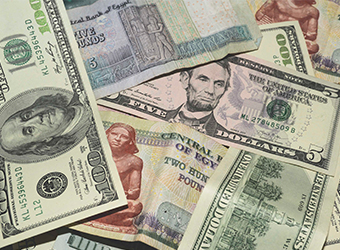Egypt’s government spent over 100 billion Egyptian pounds ($5.65 billion) more than it planned to in the 2016-17 financial year due to its decision to float the country’s currency, three government sources told Reuters Thursday.
The government had earmarked 974 billion pounds for spending in the 2016-17 budget approved by parliament but spent over 100 billion more because of increases in fuel and wheat prices as well as higher interest payments due to the float. It will now seek parliamentary approval for the overspend, the sources aid.
The central bank floated the pound in November last year and the government reached an agreement with the International Monetary Fund for a $12 billion loan that included subsidy cuts, tax increases and looser capital controls.
“The government asked for parliament’s approval for an extra allowance worth over 100 billion pounds due to extra spending because of the increases in prices of fuel subsidies and wheat purchasing as well as higher interest payments in the budget. Expenses were higher than planned for because of the float,” said one senior government source, who requested anonymity.
Oil Minister Tarek elMolla said in August that Egypt’s fuel subsidy bill in 2016-17 jumped to 120 billion pounds, up from 51 billion in 2015-16.


